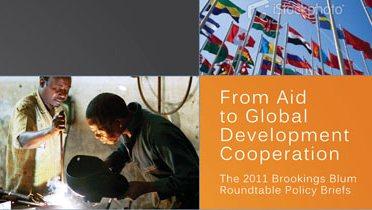EXECUTIVE SUMMARY
The evidence suggests that in the past, misgovernance in the Middle East was largely ignored by the international community, which provided increasing volumes of foreign aid to governments while their standards of voice and accountability were among the worst worldwide—and declining.
Both politics and the economy were subject to elite capture—that is, the shaping of the rules of the game and institutions of the state for the benefit of the few—across the region. In Egypt and Tunisia, the old leadership has been toppled, yet even there the legacy of misgovernance and capture matters for prioritizing reforms and assistance during the transition, and calls for a revamping of the aid strategies of the international community, including the international financial institutions.
Aid strategies need to become more selective across countries and institutions, with due attention given to democratic reforms, devolution, civil society, and to concrete governance and transparency reforms. Reforms also need to mitigate capture and corruption. This policy brief offers specific recommendations for the international community as input for this process of improving strategies of assistance.




